Protecting Tanzania's Tarangire Ecosystem
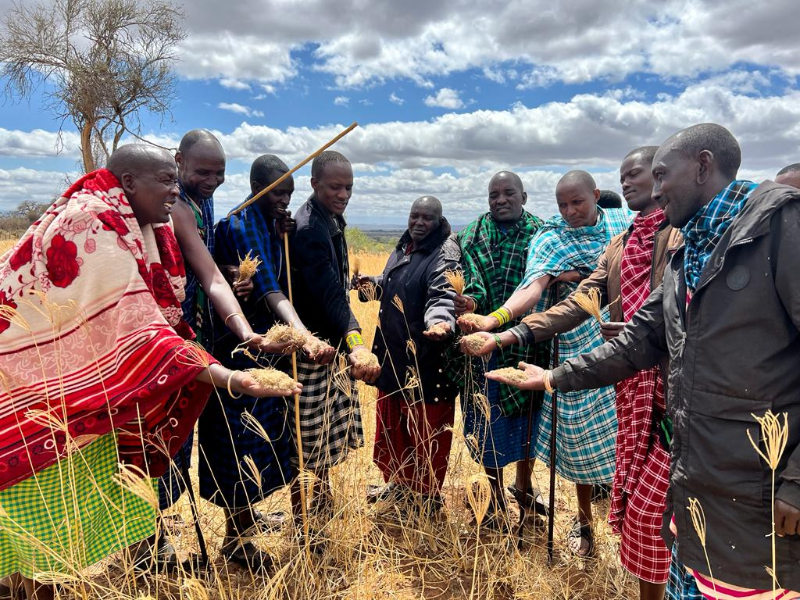
Training communities in project area in grass seed harvesting for scaling up grazing areas for livestock. Credit - TNC.
Community-led conservation efforts flourish in the Tarangire Ecosystem
The Tarangire Ecosystem in Northern Tanzania, a 3.5million ha expanse, is home to East Africa's third-largest terrestrial mammal migration. This remarkable landscape, shared by wildlife and local communities, faces significant threats from habitat fragmentation and climate change. In response, The Nature Conservancy (TNC) and its partners, Ujamaa Community Resource Team, Istituto Oikos, and Tanzania People and Wildlife (TPW), are spearheading efforts to promote sustainable rangeland management and biodiversity conservation through this project.
The project's holistic approach integrates community-based conservation, sustainable grazing, and tourism initiatives to support biodiversity and improve livelihoods. As Alphonce Blass Mallya, the project leader, explains, “Our goal is to keep habitats and movement corridors open while enhancing the lives of pastoralist and hunter-gatherer communities.”
In the past year, the project expanded Integrated Rangeland Management practices to 7 new villages, developing 14 seasonal grazing plans and selecting 21 grazing coordinators. These efforts now cover 546,000 ha, with the aim to reach 700,000 ha by 2026. The project has engaged 49 villages and 1 Wildlife Management Area in sustainable rangeland management, creating Village Rangeland Management Committees (VRMCs) and providing training on new livestock guidelines to protect and improve grazing areas.
A significant milestone was the submission of a project concept note for the soil carbon project, which aims to enhance carbon sequestration through improved rangeland management. Community consultations have involved over 1,100 people, raising awareness about the benefits of soil carbon initiatives. Additionally, TPW has expanded its beekeeping programme, training 100 women in Ngoley village and supporting the installation of 220 new hives. This initiative not only boosts local incomes but also promotes biodiversity by maintaining healthy bee populations
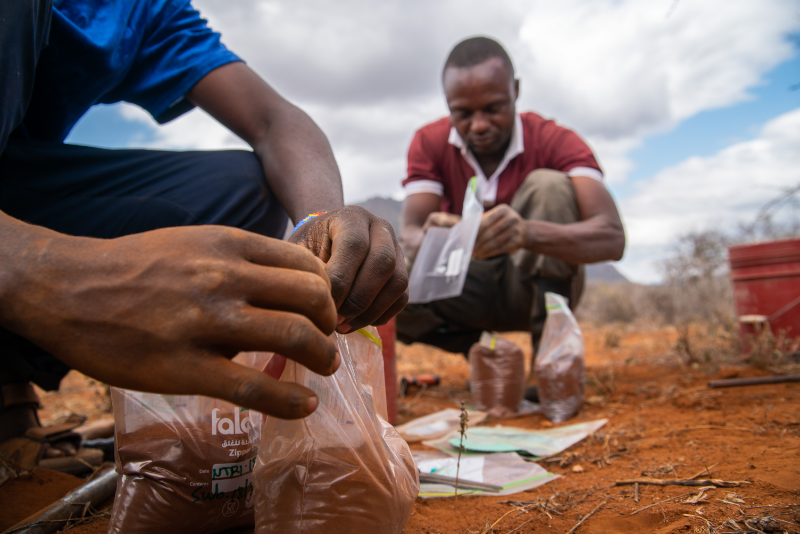
The project has also focused on eco-tourism development, particularly through the overhaul of the leadership structure of the Women Cultural Boma in Engaresero village. This initiative, supported by the Pastoral Women Council, has led to the construction of four guest houses, aiming to diversify women's economic opportunities and enhance tourism activities in the area.
Challenges have arisen, particularly legislative ones, with overlapping land laws creating conflicts over land use. To address these, TNC and its partners are actively engaging with government authorities to resolve policy contradictions and ensure sustainable land management practices are upheld. Additionally, the influx of outside investors has sometimes disrupted community engagement efforts. By adhering strictly to free, prior, and informed consent processes, the project ensures that communities make informed decisions about their involvement in carbon projects.
This project in the Tarangire Ecosystem continues to showcase the power of community-led conservation efforts. With sustained engagement and adaptive management practices, the project aims to secure key wildlife habitats, enhance local livelihoods, and create a resilient and biodiverse landscape for future generations.
One of the project's notable accomplishments is its work with Village Rangeland Management Committees (VRMCs). These committees are instrumental in implementing rangeland management practices, ensuring that grazing plans are adhered to and resolving land use conflicts. The establishment and training of VRMCs in 49 villages have been pivotal in promoting sustainable rangeland management across the Tarangire Ecosystem.
Another integral aspect of the project is the Herders Under The Tree Schools programme. This initiative targets young herders, providing them with practical training in sustainable grazing practices. By promoting principles such as bunched herding and rotational grazing, this programme aims to instil sustainable grazing practices among the youth, ensuring the preservation of rangelands for future generations
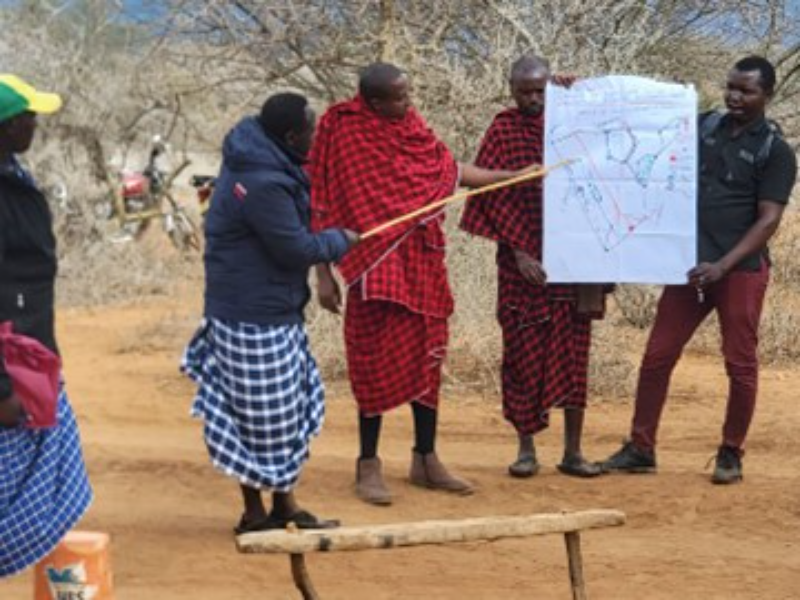
Beekeeping has also been a vital component of the project. TPW's beekeeping programme has expanded significantly, training women in beekeeping techniques and supporting the installation of new hives. , in particular, empowers women to manage beekeeping operations, providing a sustainable source of income while promoting biodiversity through healthy bee populations.
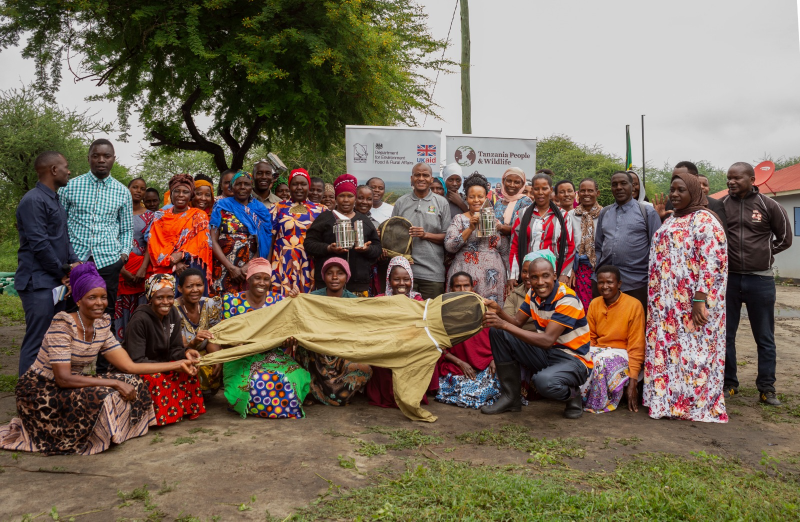
The soil carbon project is set to revolutionise how communities manage their rangelands. By improving soil organic carbon stocks, the project aims to enhance soil health and combat climate change. Community consultations have successfully raised awareness about the benefits of soil carbon projects, involving over 1,100 people across 26 communities. This initiative seeks to create a sustainable revenue stream for communities through carbon credits, linking conservation efforts with financial incentives.
As the project continues to evolve, its focus on ecological, financial, and social sustainability remains central. Collaboration, accountability, and partnership are key pillars driving the project towards its mission and vision. By fostering a holistic and inclusive approach, the project is paving the way for a resilient and prosperous future for the Tarangire Ecosystem and its communities.
This project exemplifies how community-led conservation efforts can lead to significant positive outcomes. By integrating sustainable livelihoods with biodiversity conservation, the project not only safeguards the Tarangire Ecosystem but also empowers local communities to lead the way towards a sustainable future. The achievements in rangeland management, eco-tourism, beekeeping, and soil carbon sequestration all contribute to a comprehensive strategy that addresses both environmental and socio-economic challenges, ensuring that the Tarangire Ecosystem remains a vibrant and sustainable landscape for generations to come.
Written by Victor Nyambok, Charles Leonard, and Alphonce Mallya. For more information on this Darwin Initiative Extra project DAREX004, led by The Nature Conservancy (TNC), please click here.
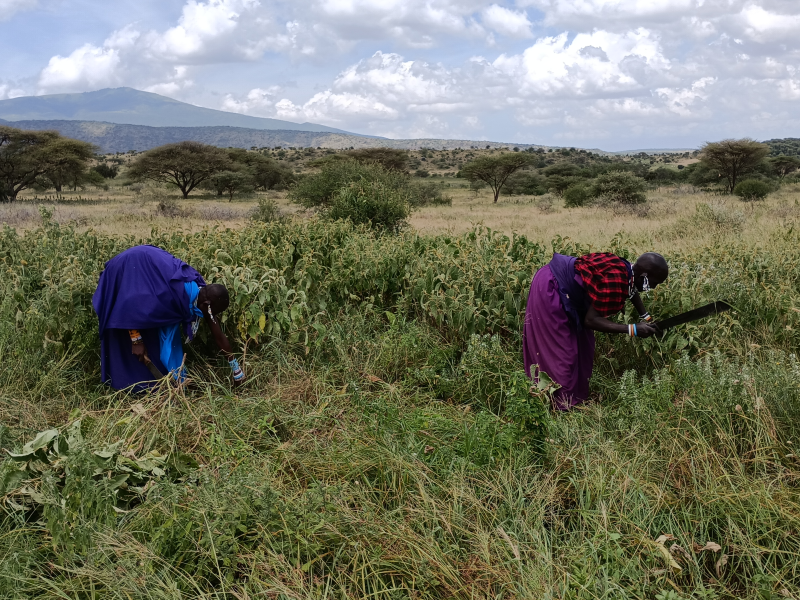 RGs uprooting invasive forbs in Mbopo restoration site. Credit - Oikos.
RGs uprooting invasive forbs in Mbopo restoration site. Credit - Oikos.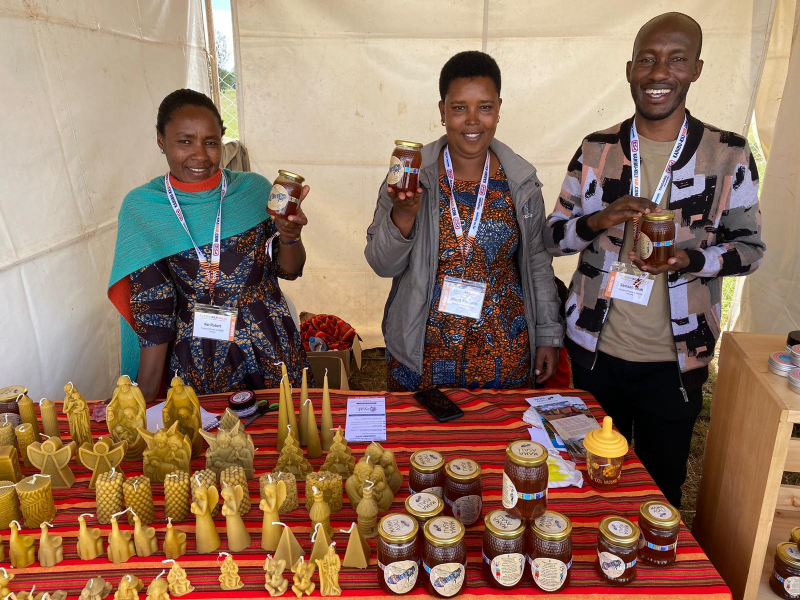
 Back
Back